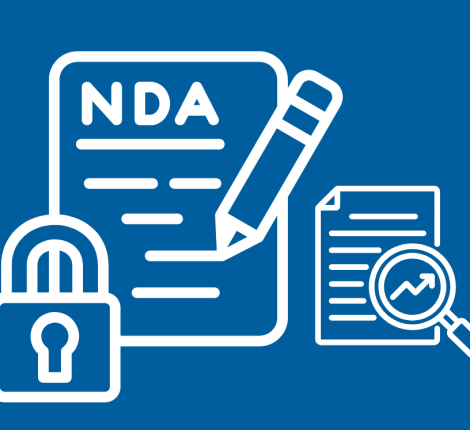Corporate Newsletter: Draft Mediation Bill 2021 – March 2022
The Mediation Bill, 2021 (Bill) was introduced in Rajya Sabha on December 20, 2021. Following close on the heels of India signing the United Nations Convention on International Settlement Agreements Resulting from Mediation (Singapore Convention), the Bill looks to strengthen the position of mediation as a mode of alternative dispute resolution in India. The Bill aims to promote, encourage and facilitate mediation especially institutional mediation for the resolution of disputes, commercial and otherwise, enforce domestic and international mediation settlement agreements, provide for a body for the registration of mediators, encouraging community mediation and to make online mediation an acceptable and costeffective process among others.
Salient features of the Bill
Given below is a brief analysis of the Bill, highlighting some of its significant provisions:
1) Definition of Mediation (Mediation): A process, whether referred to by the term mediation, pre-litigation mediation, online mediation, community mediation, conciliation or an expression of similar nature, whereby party or parties request a third person (referred to as mediator or mediation service provider) to assist them in their attempt to reach an amicable settlement of a dispute.
2) Applicability: The Bill will apply to (i) Mediation conducted in India where both the parties reside in India or have their principal place of business in India; or (ii) the Mediation where the commercial agreement states that Mediation will be as per the Bill, or (iii) an international mediation (i.e., mediation related to a commercial dispute where at least one party is a foreign government, a foreign national/resident, or an entity with its place of business outside India). In these cases, if the central or state government is a party, the Bill will only apply to: (a) commercial disputes, and (b) other disputes as notified by such government.
3) Pre-Litigation Mediation: The Bill proposes that parties to a civil or commercial dispute must take steps to settle their dispute through pre-litigation Mediation before approaching a court of law. Additionally, courts and tribunals are proposed to be given powers to refer parties to Mediation and pass suitable interim reliefs to protect the interests of the parties to a court case pending completion of Mediation proceedings.
4) Mediation Service Provider: The Bill provides for a mediation service provider (Mediation Service Provider) which is a body or organization that provides for procedures and rules to govern the conduct of the Mediation. An authority constituted under tthe Legal Services Authorities Act, 1987, and mediation centers annexed to a court or tribunal or such other forum fall within the ambit of Mediation Service Provider.
5) Time Limit: The Bill proposes that the Mediation shall be completed within a period of 180 (One Hundred and Eighty) days from the date fixed for the first appearance before the mediator. The period for Mediation mentioned may be extended for a further period as agreed by the parties, but not exceeding 180 (One Hundred and Eighty) days.
6) Mediation Settlement Agreement: The Bill proposes to introduce an agreement known as mediated settlement agreement (Agreement) as a culmination of Mediation related disputes. The Agreement shall be final and binding once it is signed by the parties and authenticated by the mediator. Further, the Bill also allows an aggrieved party to challenge the Agreement in a court or tribunal of competent jurisdiction in the event of fraud, corruption, impersonation or relating to disputes not fit for mediation.
7) Confidentiality: The Bill provides that the mediator, Mediation Service Provider, the parties and participants in the Mediation shall keep information and communication relating to the mediation proceedings confidential and no party to the mediation shall in any proceedings before a court or tribunal including arbitral tribunal, rely on or introduce as evidence any such information or communication. However, confidentiality shall not apply to the Agreement where its disclosure is necessary for the purpose of registration, implementation, enforcement and challenge.
8) Online Mediation: The Bill proposes to introduce a process of online mediation including prelitigation Mediation which may be conducted at any stage of Mediation, with the written consent of the parties. The conduct of online Mediation shall be in the circumstances, which ensure that the essential elements of integrity of proceedings and confidentiality are maintained at all times and the mediator may take such appropriate steps in this regard as he deems fit.
9) Community Mediation: The Bill provides for the type of disputes wherein community mediation may be resorted to i.e., any dispute likely to affect peace, harmony and tranquility amongst the residents or families of any area or locality. It will be conducted by a panel of three mediators (may include persons of standing in the community, and representatives of area/resident welfare associations, etc.).
10) Mediation Council: The Bill provides for the establishment of a mediation council of India (Council) as a body corporate to promote and regulate domestic and international Mediation in India. The Council will consist of a chairperson, two full-time members, three ex-officio members, and one part-time member. Members of the Council are proposed to be selected from among Supreme Court or High Court judges, eminent persons, academicians in the field of Mediation, and key government officials.
11) Proposed Amendments to Various Legislations: The Bill proposes various amendments to overlapping legislations to streamline the mediation process in India. It proposes to amend certain provisions of the Contract Act, 1872; the Arbitration and Conciliation Act, 1996; the Code of Civil Procedure; the Commercial Courts Act, 2015; the Legal Services Authorities Act, 1987; The Micro, Small and Medium Enterprises Development Act, 2006; The Companies Act, 2013 and The Consumer Protection Act, 2019.
Conclusion
The government’s attempt to have a standalone mediation law is positive because of the beneficial effect it will have in reducing the backlog of cases in the Indian judicial system. However, there are certain gaps and loopholes in the legislation which need to be addressed. Firstly, the applicability of pre-litigation mediation will be a challenge for disputants who may prefer to litigate and not mediate the dispute. In reference to confidentiality, if one party decides to sue the other party following a failed mediation, then that party is prevented from introducing key documents as evidence in court simply because they were a part of the mediation proceedings. Further, if any party breaches the confidentiality terms during an ongoing Mediation, the Bill does not provide for any liability or penalties in respect of the same. Lastly, clarity on which entities will be recognized by Mediation Councils as Mediation Service Providers is required.
Barring certain gaps, the Bill ensures a more efficient and faster resolution mechanism to settle disputes commercial and otherwise, which may arise between the parties. Due regard given to the process of online mediation in the Bill is highly commendable. The same should prove to be cost-efficient and time-efficient to the parties.




